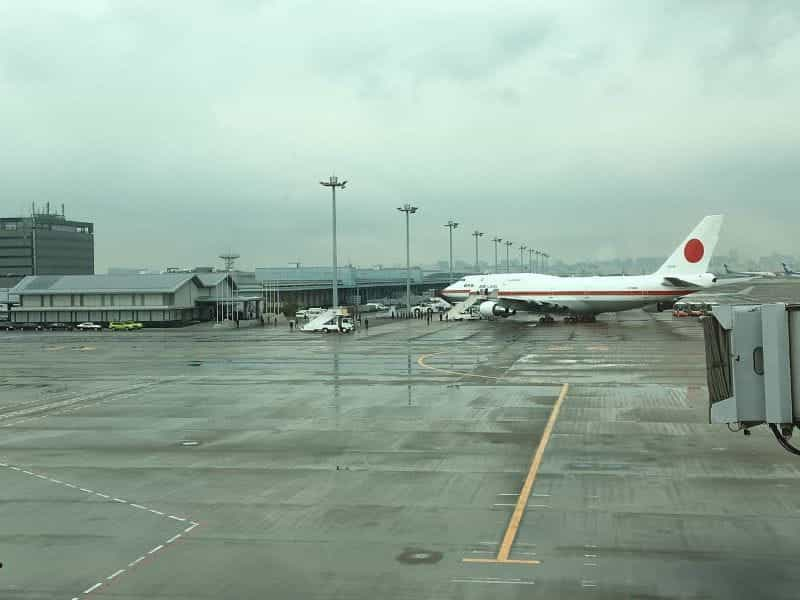The Growing Japanese Criticism of Tokyo Olympics
Local criticism towards the Tokyo 2021 Olympic Games is growing and there is a widespread feeling of unpopularity due to overspending, delays, and corruption. The Olympics was originally scheduled to go ahead last year but was delayed due to the setbacks presented by the COVID pandemic. The new start date is July 23rd, and even whilst this Olympics will be the first debut for four new sports, local communities in Japan have been voicing their concerns and condemnation of this iteration.

It is unlikely there will be much aviation activity around Japan’s major airports this summer. International spectators are advised to stay away and the scaled-back version of the games will just involve athletes across the major sports. ©networkerz/Pixabay
The numbers supporting these insights are truly astounding. In a recent survey of Japanese residents, 83% answered that they no longer support the staging of the Olympics in their country and they want Tokyo 2020 to be cancelled. Following the postponement of the Olympics into 2021, primary concerns revolve around the ongoing threat of COVID within Japan. Hospitals are still feeling the pressure of spikes in case numbers and a union representing thousands of doctors across Japan has signed a petition requesting the event be called off due to the active threat that still exists.
The response from the International Olympic Committee is interesting, to say the least. They are slightly combative and dismissive of the public concern for the games. Whilst they acknowledge that support for the Olympics is dwindling in Japan, they’re defiant and unwavering in their commitment to continue with the roadmap as planned. The IOC says they will listen to these concerns but it will have no bearing on the eventual delivery of the games as planned.
Going further to disavow this point of view, the Olympics organizers took the opportunity to state that whilst hosting the Olympics does come at a huge initial cost, the financial benefits that will eventually disseminate throughout the local economy far outweigh this outlay. At this stage of the event planning public opinion does become largely irrelevant in the view of the IOC, they will only consider this in the selection of a city stage of the Olympics planning roadmap.
Public Losing Interest in the Olympics
It isn’t uncommon for the local populations of the hosting cities for the Olympics to have their interest in the actual event wane right up until they take place. There is enormous risks associated with hosting global prestigious celebrations of sport, such as the World Cup or the Olympics, and often times the eye-watering hosting costs attract significant backlash from domical citizens.
The case for Tokyo hasn’t been too dissimilar, initially, there was huge excitement across the country following their successful bid to host the games. Creative ideas were thrown around about renewable winners medals, alternative approaches to mascots, and an ambitious drive to recruit hundreds of thousands of volunteers. Following the massive tsunami and consequent nuclear disaster at Fukushima, the games were seen as a step in the right direction for a country that had suffered for a brief period. However, this sentiment has quickly transformed into resentment and huge outcry to call off the games entirely.
In 2016 the first dissent began to swirl, and Japanese citizens began to lose patience with the bureaucratic organizing committee who showed an ineptitude for delivering the project within budget and on time. With a lack of leadership and skilled workers doing the actual work, cost overruns began stacking up, and the central stadium plan was scrapped at an advanced stage to be replaced with a much cheaper alternative.
Analysts combing through millions of tweets and social media posts have built models to gauge public sentiment in hosting the games still in Japan. Their conclusion was the negative comments regarding the Olympic games and more specifically the International Olympic Committee far outweighed the positive. Digging deeper they concluded that the general opinion of the Japanese public was that the IOC is a self-interested organization that hadn’t placed a high priority on helping develop the host city.
How Can Japan Benefit?
Whether or not spectators will be able to attend the events is still a matter of contention. Given several major country’s government’s official stances is to not visit Japan under any circumstances, it is highly likely we’re going to have a greatly scaled-back version of the games this summer. Despite these travel warnings, athletes from around the world will of course still be able to participate, in both the Olympic and Paralympic disciplines.
Despite the lack of spectators at the event, broadcast revenues will still flow into Japan. The last two Olympic Games generated around $4.5 billion for the International Olympic Committee, which is certainly an attractive amount and enough to motivate the organizers to deliver this event at all costs. Whilst Japan will receive some of these revenues, the largest portion will go to the IOC, thus raising the question again, what is in it for Japan?
Historically host cities have benefited from the money spectators have spent on local amenities such as hotels, restaurants, and leisure. Without the inflow of hundreds of thousands of foreign fans, it is going to be incredibly difficult for Japan to meet the shortfall of approximately $23 billion. The specific contract signed between the IOC and Tokyo allows for some leeway on the amount that the city of Tokyo will generate from the games, with $1.3 billion the initial stated amount, with a potential for this to be increased.
The future of the games will be determined this decade, where three iterations are set to go ahead; Paris 2024, Milan-Cortina Winter Games in 2026, and Los Angeles in 2028. All of the host cities have vowed to deliver their events within budget, by making use of already existing venues, and integrating long-standing infrastructure projects that will benefit local communities in the long run.



